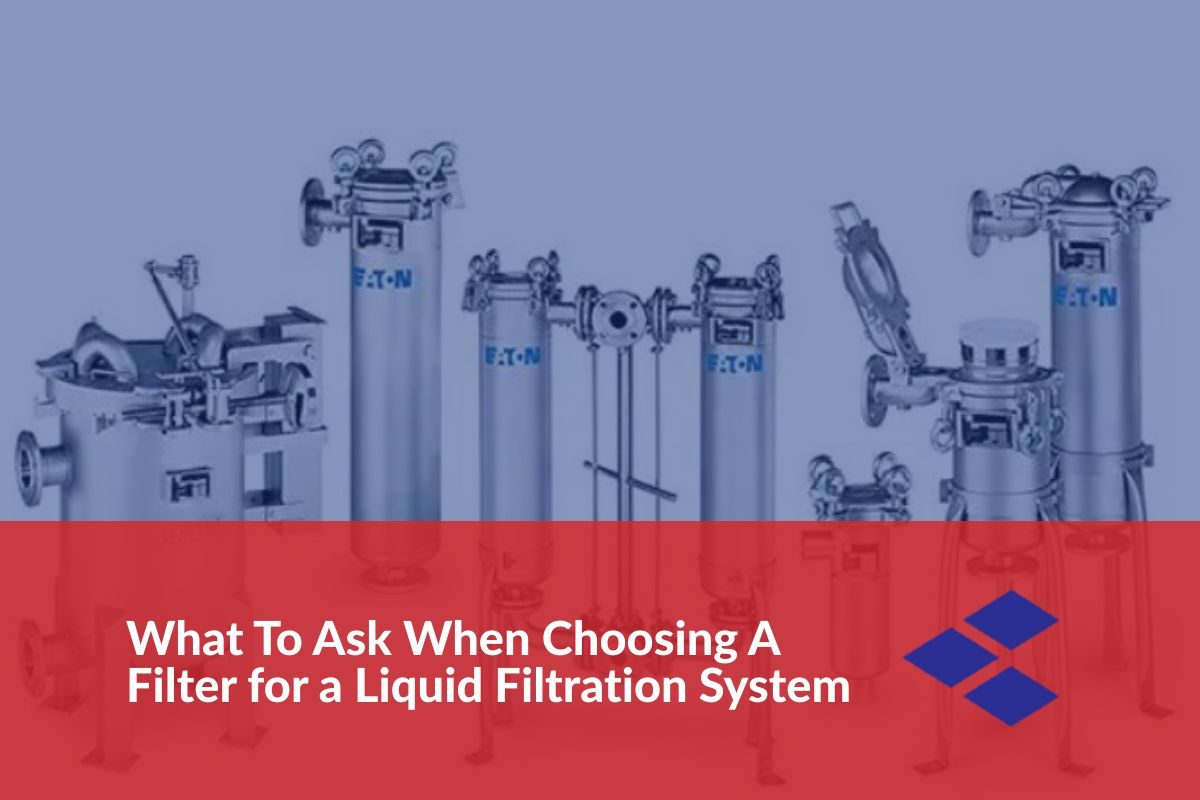
Knowing what parts to use for your industrial liquid filtration system can sometimes be tricky. A lot goes into an industrial filtration system and many different parts that can impact your system’s success. Selecting the right filter for your system without knowing what to ask can often feel like finding a needle in a haystack. But coming in prepared and knowing your system’s needs can make the choice a whole lot easier.
Why is Using the Right Filter for a Liquid Filtration System Important?
Achieving the best product results and ensuring your industrial application runs at peak efficiency depends on installing the right system parts. Liquid filtration is commonly utilized in industrial applications to remove unwanted particles and other contaminants from fluids. Filters for liquid filtration systems are available in various materials and sizes. These filters can be utilized to remove many solid particles, microorganisms, and other contaminants. Selecting the right filter for your application ensures that your system produces at the best quality and the most affordable cost.
What Happens When You Choose the Wrong Filter for a Liquid Filtration System?
Choosing the wrong filter for your system’s needs can harm your industrial filtration application. Filters that fit improperly or are otherwise incompatible with your production can cause a variety of different issues, from the introduction of contaminants into your products to time wasted due to breakdown or frequent need for replacement filters. Impacts like these cost your business money in the long run, so avoiding issues like selecting the wrong filter is imperative to your business’s success.
Questions to Ask When Choosing A Filter for a Liquid Filtration System
Here are a few questions to ask when deciding what type of filter is right for your liquid filtration system:
- What size particles do you need to filter out? The micron rating on your filter determines the size of the particles that your filter will catch. Your filter requirements will change depending on the size of the particles you need to be removed.
- What quality of end product does your system require? Nominal filters will remove larger-sized contaminants, while absolute filters capture 99.99% of particles within their micron rating. Absolute filters are more costly than their nominal counterparts and are typically utilized in high-quality applications.
- What is your system’s flow rate? The filter you choose will impact the flow rate of your system, so knowing the flow rate your system requires will clue you in on what type of filter to use. Filters should be slightly oversized to deal with surges, as well as to prevent limiting of production.
- What pressure is your system putting out? Knowing what pressure your filter needs to withstand will help determine the right filter. Filters should be sized approximately one-third higher than your system’s maximum pressure. This helps to ensure your filter can handle the pressure your system puts out, even with build-up.
- What temperature does your system filter at? The temperature of the filtered material can affect its viscosity and, as a result, its flow rate.
- What is the viscosity of the liquid being filtered through your system? More about viscosity: the higher the viscosity of the liquid being filtered, the more demand will be placed on your filter. Filers should be larger in systems with high viscosity to reduce effects on flow rate.
- What is the dirt load of the material being filtered through your system? If your system is filtering fluid with a high dirt load, consider utilizing multiple filtration steps with progressively lower micron ratings to reduce the demands on a single filter.
- What chemicals need to be able to pass through your system? If you’re processing liquids that include chemicals, make sure the filter you choose is compatible with those chemicals. Otherwise, they may cause fast degradation of your filter.
- Does your system process continuously or in batches? When processing in batches, your filter should be changed after each batch. Continuous processes can rely on the same filter for a longer period of time.
- What filter size is best for your system? The filter you pick needs to fit properly on its filter housing. Also, consider the amount of space you have for filter removal and replacement.
- Does your system have any regulatory requirements? The filters you use must meet regulatory requirements if you are involved in pharmaceutical or food and beverage production.
Why Choose ESA for Your Liquid Filtration System Needs?
Our experts at ESA are here to help you decide what type of filter will work best for your needs. Also, we’re equipped to install the filter within your system and can help with other repairs and part replacements as needed. If you have any questions about what filter is right for your application, call ESA today for a consultation!
Arthur Pue
Arthur Pue is the President of Engineering Sales Associates. Connect with him on LinkedIn.
